
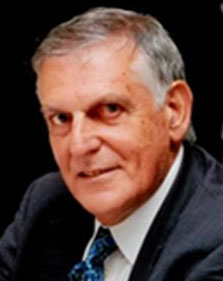

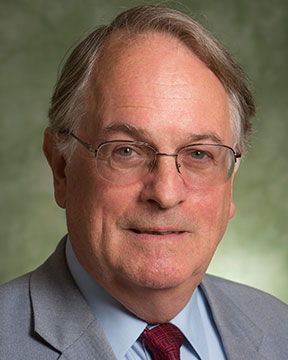

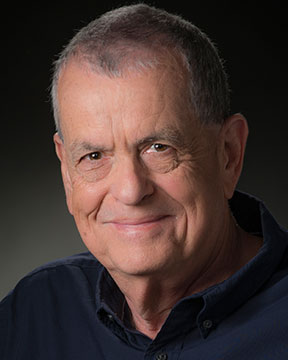

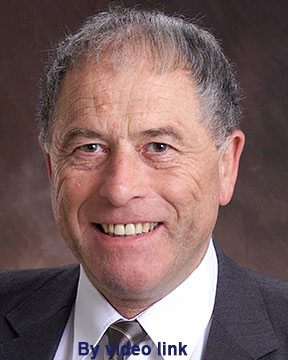
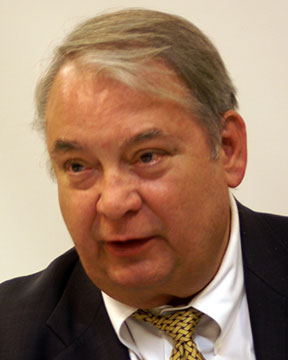

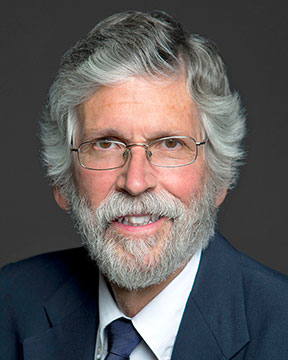

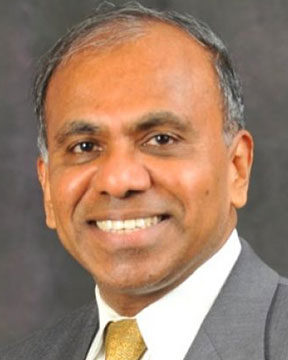
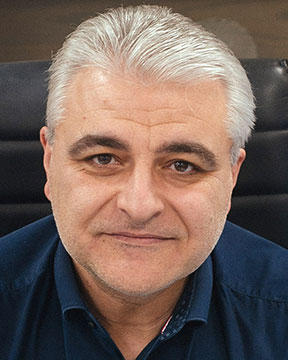










Click here to see the Chair special introduction for this symposium
SYMPOSIUM and ROUND TABLE TOPICS




 Dr. Florian Kongoli holds 3 degrees: a Bachelor of Science, a Master of Science/University of Montreal, Canada and a Doctor of Science Degree/Tohoku University, Japan. Since 1996 he is CEO of FLOGEN Technologies Inc.,(www.flogen.com) a Sustainable High Tech applied research institute
Dr. Florian Kongoli holds 3 degrees: a Bachelor of Science, a Master of Science/University of Montreal, Canada and a Doctor of Science Degree/Tohoku University, Japan. Since 1996 he is CEO of FLOGEN Technologies Inc.,(www.flogen.com) a Sustainable High Tech applied research institute
 Marta Eliza Plonska-Brzezinska received her Ph.D. in Chemistry at the University of Bialystok, Poland (2005). After a Doctoral Research Fellowship at the University of California, Davis, working with Prof. Alan Balch and a Postdoctoral Fellowship at the University of Clemson, working with Prof. Luis Echegoyen, she has come back to her Alma Mater. Currently, she is working at the Medical University of Bialystok since August 2018, as a Head of Organic Chemistry Department.
Marta Eliza Plonska-Brzezinska received her Ph.D. in Chemistry at the University of Bialystok, Poland (2005). After a Doctoral Research Fellowship at the University of California, Davis, working with Prof. Alan Balch and a Postdoctoral Fellowship at the University of Clemson, working with Prof. Luis Echegoyen, she has come back to her Alma Mater. Currently, she is working at the Medical University of Bialystok since August 2018, as a Head of Organic Chemistry Department. 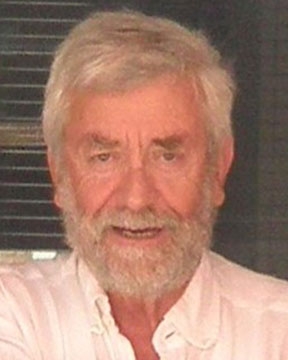
 Prof. Miguel Á. Alario-Franco (born 1942) is Emeritus professor at Universidad Complutense in Madrid (UCM) where he obtained a D.Sc. in 1970 and a professorship in 1976. A pioneer in the development of Solid State Chemistry both as an academic discipline and as a research topic in Spain and abroad, he founded at UCM the S.S. Ch group, including the High Pressure Synthesis and the Electron Microscopy Laboratories and headed it between 1974 and 2012. His wide and positive mentoring activities benefited a large number of scientists, over 150, many of them foreigners, in particular Ibero-American.
Prof. Miguel Á. Alario-Franco (born 1942) is Emeritus professor at Universidad Complutense in Madrid (UCM) where he obtained a D.Sc. in 1970 and a professorship in 1976. A pioneer in the development of Solid State Chemistry both as an academic discipline and as a research topic in Spain and abroad, he founded at UCM the S.S. Ch group, including the High Pressure Synthesis and the Electron Microscopy Laboratories and headed it between 1974 and 2012. His wide and positive mentoring activities benefited a large number of scientists, over 150, many of them foreigners, in particular Ibero-American. 
 <p>Dr. Marquis is a Professor at the Department of Mechanical Engineering at the San Diego State University in San Diego California, and has also been a Professor at the Wayne E. Meyer Institute of Systems Engineering and the Department of Systems Engineering at the Naval Postgraduate School in Monterey California. His most recent research focuses on Nanotechnology and Nanosystems, Nanostructured Hybrid Material Systems, Alternative and Renewable Energy Systems, Defense Energy Systems and Thermal Management Systems and Nano and Microstructural Design of Multifunctional Materials. He received advanced degrees from the Imperial College of Science, Technology and Medicine (PhD and DIC), and from the University of Lisbon (PhD and Diploma of Engineering). He has been an active Chartered Engineer in the Council of Engineering Institutions in UK and a Registered Professional Metallurgical Engineer and a Registered Professional Chemical and Industrial Engineer in Portugal. He taught extensively at the Department of Mechanical and Astronautical Engineering at the Naval Postgraduate School and at the Department of Materials and Metallurgical Engineering at the South Dakota School of Mines and Technology. He has been a Visiting Professor at the Department of Applied Mechanics and Engineering Science at the University of California, San Diego, and at the Department of Mechanical and Aerospace Engineering at the University of Delaware and Academic Visitor at the Imperial College of Science and Technology, London, UK. In addition he taught considerably at the Instituto Superior Tecnico, at the University of Minho and at the University of Coimbra, in Portugal. <br /><br />He has several patents and patent applications, eleven disclosed inventions of available technologies for licensing and commercialization, over ninety refereed publications, edited eight books, and wrote several book chapters, over 35 special reports and five monographs. He supervised over 35 Master and PhD students, delivered over 30 invited and keynote lectures and gave over 80 contributed presentations. He has received many TMS awards and other awards such as FASM, Fellow Royal Microscopical Society, ,Who' Who in Engineering, Entrepeneurs of America, Faculty Award for Teaching with Technology (Governor of the State of South Dakota) He is an ABET Program Evaluator for Materials Engineering, Metallurgical Engineering and Polymer Engineering. He has been and is a member of many global Professional Societies, Professional Organizations and Advisory Boards, Editorial Boards (such as Portugaliae Physica), Board of Trustees (such as Alpha Sigma Mu) and several Award Committees where he served and continues to serve extensively. He has been engaged in the organization of many International Conferences, Workshops and Symposia in many different global venues. He is a Paul Harris Fellow and a Member of the Rotary International, leaved and worked in several countries and speaks fluently five languages. <br /><br />More recently he has organized very successfully a very large number of International Conferences, Workshops and Symposia under the umbrella of many Societies and Organizations such as Engineering Conferences International and independently in many different global venues. Some typical examples are the JAPMED series (Japanese-Mediterranean Workshop on Applied Electromagnetic Engineering for Magnetic, Superconducting and Nanomaterials): III (Athens, Greece-2003), IV (Cairo-2005) and V (Cyprus-2007); and the PRICM series. He donated extensively in time and energy during 31 years of Service to TMS and served and serves in many Divisions and. Committees such as: Materials Design and Manufacturing Division, Professional Registration Certification, Accreditation, Powder Materials, Mechanical Behavior, Composites and Program Representative. At the Service of TMS he has organized seven (7) International Symposia and was part of the US/ International Organizing Committee for PRICM-6 (Jeju Island, Korea) and PRICM-7(Cairns, Australia), the USA In-Country Technical Representative for PRICM-7 and the Congress Organizing Chair for PRICM-8 (Waikoloa Village, Hawaii, 2013). Throughout his professional carrier Prof. Marquis has developed and sustained very strong research programs, and has been a Member of several professional collaborations within the USA and in other countries all over the world. <br /><br />He has been a reviewer for many International Journals such as: Journal of Materials Research, Journal of Material Science and Engineering, Materials Research Forum, Metallurgical Transactions, Journal of Materials, Royal Society of Chemistry, Advanced Materials Forum In addition he has served in many Review panels and has reviewed many research proposals for several Agencies.</p>
<p>Dr. Marquis is a Professor at the Department of Mechanical Engineering at the San Diego State University in San Diego California, and has also been a Professor at the Wayne E. Meyer Institute of Systems Engineering and the Department of Systems Engineering at the Naval Postgraduate School in Monterey California. His most recent research focuses on Nanotechnology and Nanosystems, Nanostructured Hybrid Material Systems, Alternative and Renewable Energy Systems, Defense Energy Systems and Thermal Management Systems and Nano and Microstructural Design of Multifunctional Materials. He received advanced degrees from the Imperial College of Science, Technology and Medicine (PhD and DIC), and from the University of Lisbon (PhD and Diploma of Engineering). He has been an active Chartered Engineer in the Council of Engineering Institutions in UK and a Registered Professional Metallurgical Engineer and a Registered Professional Chemical and Industrial Engineer in Portugal. He taught extensively at the Department of Mechanical and Astronautical Engineering at the Naval Postgraduate School and at the Department of Materials and Metallurgical Engineering at the South Dakota School of Mines and Technology. He has been a Visiting Professor at the Department of Applied Mechanics and Engineering Science at the University of California, San Diego, and at the Department of Mechanical and Aerospace Engineering at the University of Delaware and Academic Visitor at the Imperial College of Science and Technology, London, UK. In addition he taught considerably at the Instituto Superior Tecnico, at the University of Minho and at the University of Coimbra, in Portugal. <br /><br />He has several patents and patent applications, eleven disclosed inventions of available technologies for licensing and commercialization, over ninety refereed publications, edited eight books, and wrote several book chapters, over 35 special reports and five monographs. He supervised over 35 Master and PhD students, delivered over 30 invited and keynote lectures and gave over 80 contributed presentations. He has received many TMS awards and other awards such as FASM, Fellow Royal Microscopical Society, ,Who' Who in Engineering, Entrepeneurs of America, Faculty Award for Teaching with Technology (Governor of the State of South Dakota) He is an ABET Program Evaluator for Materials Engineering, Metallurgical Engineering and Polymer Engineering. He has been and is a member of many global Professional Societies, Professional Organizations and Advisory Boards, Editorial Boards (such as Portugaliae Physica), Board of Trustees (such as Alpha Sigma Mu) and several Award Committees where he served and continues to serve extensively. He has been engaged in the organization of many International Conferences, Workshops and Symposia in many different global venues. He is a Paul Harris Fellow and a Member of the Rotary International, leaved and worked in several countries and speaks fluently five languages. <br /><br />More recently he has organized very successfully a very large number of International Conferences, Workshops and Symposia under the umbrella of many Societies and Organizations such as Engineering Conferences International and independently in many different global venues. Some typical examples are the JAPMED series (Japanese-Mediterranean Workshop on Applied Electromagnetic Engineering for Magnetic, Superconducting and Nanomaterials): III (Athens, Greece-2003), IV (Cairo-2005) and V (Cyprus-2007); and the PRICM series. He donated extensively in time and energy during 31 years of Service to TMS and served and serves in many Divisions and. Committees such as: Materials Design and Manufacturing Division, Professional Registration Certification, Accreditation, Powder Materials, Mechanical Behavior, Composites and Program Representative. At the Service of TMS he has organized seven (7) International Symposia and was part of the US/ International Organizing Committee for PRICM-6 (Jeju Island, Korea) and PRICM-7(Cairns, Australia), the USA In-Country Technical Representative for PRICM-7 and the Congress Organizing Chair for PRICM-8 (Waikoloa Village, Hawaii, 2013). Throughout his professional carrier Prof. Marquis has developed and sustained very strong research programs, and has been a Member of several professional collaborations within the USA and in other countries all over the world. <br /><br />He has been a reviewer for many International Journals such as: Journal of Materials Research, Journal of Material Science and Engineering, Materials Research Forum, Metallurgical Transactions, Journal of Materials, Royal Society of Chemistry, Advanced Materials Forum In addition he has served in many Review panels and has reviewed many research proposals for several Agencies.</p>

 Dr. Mohamed Sanad Noufal is currently working as an Assistant Professor in the Department of Chemical Engineering in the School of Engineering and Technology at Hampton University. Dr. Mohamed graduated with a Ph.D. (2022) in Environmental sciences and Engineering from the University of Texas at El Paso. He worked for four years as a Ph.D. teaching and researcher associate in the carbon nanomaterials and functional quantum materials labs at UT EL Paso.
Dr. Mohamed Sanad Noufal is currently working as an Assistant Professor in the Department of Chemical Engineering in the School of Engineering and Technology at Hampton University. Dr. Mohamed graduated with a Ph.D. (2022) in Environmental sciences and Engineering from the University of Texas at El Paso. He worked for four years as a Ph.D. teaching and researcher associate in the carbon nanomaterials and functional quantum materials labs at UT EL Paso.
 Emilio Palomares (València, 1974). He studied Biology at the UVEG (1997). After graduating he joined Prof. Hermenegildo García's group at the UPV/ITQ-CSIC where he got his PhD (2001). In 2001 he was awarded a "Marie Curie" Fellowship ICL (London, UK). There he began his work with molecular devices for energy conversion, under the direction of Prof. James R. Durrant. In 2004 Emilio got a "Ramón y Cajal" Fellowship at the ICMol-UVEG. In April 2006 he took a position at ICIQ-CERCA-BIST. In 2009 he was awarded an ERC starting grant to work on quantum dots for energy conversion devices and an ERC PoC in 2015. Moreover, in 2009 he was also awarded with an ICREA research Professorship.
Emilio Palomares (València, 1974). He studied Biology at the UVEG (1997). After graduating he joined Prof. Hermenegildo García's group at the UPV/ITQ-CSIC where he got his PhD (2001). In 2001 he was awarded a "Marie Curie" Fellowship ICL (London, UK). There he began his work with molecular devices for energy conversion, under the direction of Prof. James R. Durrant. In 2004 Emilio got a "Ramón y Cajal" Fellowship at the ICMol-UVEG. In April 2006 he took a position at ICIQ-CERCA-BIST. In 2009 he was awarded an ERC starting grant to work on quantum dots for energy conversion devices and an ERC PoC in 2015. Moreover, in 2009 he was also awarded with an ICREA research Professorship.
 Josep M. Poblet was awarded his degree in Chemistry from the University of Barcelona. From the same university he obtained his PhD degree in 1983 on under the supervision of Prof. Enric Canadell. He made a postdoctoral research stay with Prof. Marc Bénard at the Strasbourg University, where he had the opportunity to learn about the computational modelling of inorganic systems. He became Associate Professor in Physical Chemistry at the Rovira i Virgili University (Tarragona, Spain) in 1986. Since 2001 he is Professor of Physical Chemistry at this university. He has been Director of the Physical and Inorganic Chemistry Department for 12 years. Josep M. Poblet was awarded with the 2012 Physical Chemistry award of the “Real Sociedad Española de Química” and was named Distinguished Professor of the University Rovira i Virgili in 2014. One year later, he was awarded with the ICREA ACADEMIA prize for research excellence. He has published about 280 research articles. His current research focusses on theoretical inorganic chemistry with particular interest in the electronic structure, reactivity and self-assembly of complex systems. He has extensive experience in the computational modeling of molecular metal oxides (or polyoxometalates) that are a vast family of transition metal oxides with applications in many fields, such as materials science, homogeneous, heterogeneous catalysis, electrocatalysis among many others. He is also interested in the study of high temperature formation of fullerenes and metalofullerenes and, in general, in the structural, physical and chemical properties of carbon nanoforms.
Josep M. Poblet was awarded his degree in Chemistry from the University of Barcelona. From the same university he obtained his PhD degree in 1983 on under the supervision of Prof. Enric Canadell. He made a postdoctoral research stay with Prof. Marc Bénard at the Strasbourg University, where he had the opportunity to learn about the computational modelling of inorganic systems. He became Associate Professor in Physical Chemistry at the Rovira i Virgili University (Tarragona, Spain) in 1986. Since 2001 he is Professor of Physical Chemistry at this university. He has been Director of the Physical and Inorganic Chemistry Department for 12 years. Josep M. Poblet was awarded with the 2012 Physical Chemistry award of the “Real Sociedad Española de Química” and was named Distinguished Professor of the University Rovira i Virgili in 2014. One year later, he was awarded with the ICREA ACADEMIA prize for research excellence. He has published about 280 research articles. His current research focusses on theoretical inorganic chemistry with particular interest in the electronic structure, reactivity and self-assembly of complex systems. He has extensive experience in the computational modeling of molecular metal oxides (or polyoxometalates) that are a vast family of transition metal oxides with applications in many fields, such as materials science, homogeneous, heterogeneous catalysis, electrocatalysis among many others. He is also interested in the study of high temperature formation of fullerenes and metalofullerenes and, in general, in the structural, physical and chemical properties of carbon nanoforms.
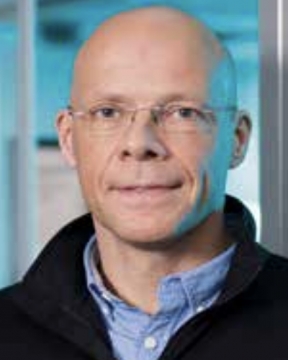
 Professor Dirik Michael Guldi's scientific career began at the University of Köln, from where he graduated in Chemistry (1988) and from where he received his PhD (1990). After a postdoctoral stay at the National Institute of Standards and Technology (NIST) in Gaithersburg/USA (1991/1992), he took a position at the Hahn-Meitner-Institute Berlin (1992-1994). Following a brief stay as a Feodor-Lynen Fellow at Syracuse University/USA he joined the faculty of the Notre Dame Radiation Laboratory/USA (1995). Then, after nearly a decade in the USA, the University of Erlangen-Nürnberg succeeded in attracting Dirk M. Guldi back to Germany, despite major efforts by the University of Notre Dame (2004), who offered him a position as Director of the Notre Dame Radiation Laboratory & Full Professor in the Physics Department, and the University of Bowling Green (2005) as Ohio Board of Regents Eminent Scholar in Photochemical Sciences.
Professor Dirik Michael Guldi's scientific career began at the University of Köln, from where he graduated in Chemistry (1988) and from where he received his PhD (1990). After a postdoctoral stay at the National Institute of Standards and Technology (NIST) in Gaithersburg/USA (1991/1992), he took a position at the Hahn-Meitner-Institute Berlin (1992-1994). Following a brief stay as a Feodor-Lynen Fellow at Syracuse University/USA he joined the faculty of the Notre Dame Radiation Laboratory/USA (1995). Then, after nearly a decade in the USA, the University of Erlangen-Nürnberg succeeded in attracting Dirk M. Guldi back to Germany, despite major efforts by the University of Notre Dame (2004), who offered him a position as Director of the Notre Dame Radiation Laboratory & Full Professor in the Physics Department, and the University of Bowling Green (2005) as Ohio Board of Regents Eminent Scholar in Photochemical Sciences.

 Professor Alexey Popov received his M. S in 1999 and Ph.D. in 2003 in physical chemistry in Moscow State University (Russia). Since 2008 Prof. Popov works at Leibniz Institute of Solid State and Materials Research (IFW Dresden, Germany). His current interests include chemical and physical properties of empty and endohedral metallofullerenes and their derivatives, spectroelectrochemistry, ESR, NMR and vibrational IR/Raman spectroscopy, magnetic properties, and quantum-chemical computations
Professor Alexey Popov received his M. S in 1999 and Ph.D. in 2003 in physical chemistry in Moscow State University (Russia). Since 2008 Prof. Popov works at Leibniz Institute of Solid State and Materials Research (IFW Dresden, Germany). His current interests include chemical and physical properties of empty and endohedral metallofullerenes and their derivatives, spectroelectrochemistry, ESR, NMR and vibrational IR/Raman spectroscopy, magnetic properties, and quantum-chemical computations

 Alain R. Puente Santiago received his PhD degree in Physical Chemistry with distinction (July 2017) from University of Cordoba, Spain. He worked under the supervision of Prof. Luis Echegoyen from April 2019 to August 2021 at the University of Texas at El Paso, USA. He is currently working as a Research Fellow with Prof. John B. Goodenough at the University of Texas at Austin. He has published 59 publications in very prestigious journals such as Journal of the American Chemical Society, Angewandte Chemie, Advanced Energy Materials, Renewable and Sustainable Energy Reviews, ACS Applied Materials and Interfaces, Journal of Materials Chemistry A, Chemical Society Reviews, Nanoscale and Green Chemistry. His current research interests include the development of bio-inspired nanomaterials for energy conversion and storage.
Alain R. Puente Santiago received his PhD degree in Physical Chemistry with distinction (July 2017) from University of Cordoba, Spain. He worked under the supervision of Prof. Luis Echegoyen from April 2019 to August 2021 at the University of Texas at El Paso, USA. He is currently working as a Research Fellow with Prof. John B. Goodenough at the University of Texas at Austin. He has published 59 publications in very prestigious journals such as Journal of the American Chemical Society, Angewandte Chemie, Advanced Energy Materials, Renewable and Sustainable Energy Reviews, ACS Applied Materials and Interfaces, Journal of Materials Chemistry A, Chemical Society Reviews, Nanoscale and Green Chemistry. His current research interests include the development of bio-inspired nanomaterials for energy conversion and storage.

 Bernard Raveau is Emeritus Professor at the University of Caen, where he received his PhD degree (1966). Founder of CRISMAT, the CNRS-ENSICAEN Laboratory for Crystallography and Materials in 1986 and of the CNRT Matériaux (National Research Centre of Technology for Materials) in 2000, he is a specialist of crystal chemistry of transition metal oxides. He is Member of the Institut Universitaire de France, Member of Académie des Sciences,Member of the Indian Academy, Member of the Academia Europea and Fellow of the Royal Society.
Bernard Raveau is Emeritus Professor at the University of Caen, where he received his PhD degree (1966). Founder of CRISMAT, the CNRS-ENSICAEN Laboratory for Crystallography and Materials in 1986 and of the CNRT Matériaux (National Research Centre of Technology for Materials) in 2000, he is a specialist of crystal chemistry of transition metal oxides. He is Member of the Institut Universitaire de France, Member of Académie des Sciences,Member of the Indian Academy, Member of the Academia Europea and Fellow of the Royal Society.
 Dr. David González Rodríguez (Madrid, 1976) graduated in Chemistry in 1999 at the Universidad Complutense de Madrid. He then joined the Nanoscience and Molecular Materials research group of Prof. Tomas Torres at the Universidad Autónoma de Madrid, where he obtained his PhD “Cum Laude” in 2003. At that time, he made two research stays in the groups of Prof. D. M. Guldi (University of Notre Dame, USA) and Prof. L. Echegoyen (Clemson University, USA). In the period 2005-2008, he joined the laboratories of Prof. E.W. Meijer, at the Eindhoven University of Technology (NL), as a Marie Curie IEF postdoctoral fellow. Dr. Gonzalez-Rodriguez is the author of around 100 publications including patents, book chapters and research articles. He has been the recipient of numerous Spanish and International Fellowships and Grants, among them the Marie Curie Intra-European and Reintegration grants, a ERC-Starting grant, and 2 ERC-Proof of Concept grants from the European Research Council. He has also been awarded with several prizes: the 2010 SUSCHEM Prize, the 2011 Sigma-Aldrich Emerging Investigator Award of the Spanish Royal Society of Chemistry (RSEQ), the 2012 Young Investigator Award from the International Society of Porphyrins and Phthalocyanines, the 2012 Young Researcher Award from the Universidad Complutense de Madrid, or the 2019 Barluenga Medal from the RSEQ Organic Chemistry Division. From 2012, he is also a member of the international advisory board of Chemical Communications. In 2022 he was promoted to “Full Professor” at the Universidad Autónoma de Madrid, where he leads the Nanostructured Molecular Systems and Materials (MSMn) group, comprising around 15 researchers. The group’s research interests focus on the development of new, versatile strategies to improve or create novel functions in organic materials by rationally ordering molecules at the nanoscale. The potential applications of such nanostructured systems are diverse, and focus on optoelectronic π-functional devices, self-healing polymers, catalysis, biomedicine, or nanoporous materials.
Dr. David González Rodríguez (Madrid, 1976) graduated in Chemistry in 1999 at the Universidad Complutense de Madrid. He then joined the Nanoscience and Molecular Materials research group of Prof. Tomas Torres at the Universidad Autónoma de Madrid, where he obtained his PhD “Cum Laude” in 2003. At that time, he made two research stays in the groups of Prof. D. M. Guldi (University of Notre Dame, USA) and Prof. L. Echegoyen (Clemson University, USA). In the period 2005-2008, he joined the laboratories of Prof. E.W. Meijer, at the Eindhoven University of Technology (NL), as a Marie Curie IEF postdoctoral fellow. Dr. Gonzalez-Rodriguez is the author of around 100 publications including patents, book chapters and research articles. He has been the recipient of numerous Spanish and International Fellowships and Grants, among them the Marie Curie Intra-European and Reintegration grants, a ERC-Starting grant, and 2 ERC-Proof of Concept grants from the European Research Council. He has also been awarded with several prizes: the 2010 SUSCHEM Prize, the 2011 Sigma-Aldrich Emerging Investigator Award of the Spanish Royal Society of Chemistry (RSEQ), the 2012 Young Investigator Award from the International Society of Porphyrins and Phthalocyanines, the 2012 Young Researcher Award from the Universidad Complutense de Madrid, or the 2019 Barluenga Medal from the RSEQ Organic Chemistry Division. From 2012, he is also a member of the international advisory board of Chemical Communications. In 2022 he was promoted to “Full Professor” at the Universidad Autónoma de Madrid, where he leads the Nanostructured Molecular Systems and Materials (MSMn) group, comprising around 15 researchers. The group’s research interests focus on the development of new, versatile strategies to improve or create novel functions in organic materials by rationally ordering molecules at the nanoscale. The potential applications of such nanostructured systems are diverse, and focus on optoelectronic π-functional devices, self-healing polymers, catalysis, biomedicine, or nanoporous materials.



 Alain TRESSAUD is CNRS Emeritus Research Director at ICMCB-CNRS, Bordeaux University. He is Honorary President of the European Academy of Science (Brussels), after being the President in the 2017-18 period. He is member of several European Academies (EASA, Austria, Disting. Fellow SCF, France). He founded and chaired until 2008 the French Network on Fluorine Chemistry, sponsored by CNRS. He received many awards, including the Atomic Centre Agency (CEA) Award of French Academy of Sciences (2008), Fluorine Award of the American Chemical Society (2011) and International Henri Moissan Prize (2012).
Alain TRESSAUD is CNRS Emeritus Research Director at ICMCB-CNRS, Bordeaux University. He is Honorary President of the European Academy of Science (Brussels), after being the President in the 2017-18 period. He is member of several European Academies (EASA, Austria, Disting. Fellow SCF, France). He founded and chaired until 2008 the French Network on Fluorine Chemistry, sponsored by CNRS. He received many awards, including the Atomic Centre Agency (CEA) Award of French Academy of Sciences (2008), Fluorine Award of the American Chemical Society (2011) and International Henri Moissan Prize (2012).
 Graduate at Engenharia Metalurgica from Universidade de Sao Paulo (1991), master's at Material and Metallurgical Engineering from Universidade de Sao Paulo (1995) and ph.d. at Material and Metallurgical Engineering from Universidade de Sao Paulo (2000). Post-doctoral at University of Delaware (USA), and Universidade de Sao Paulo. Has experience in Material and Metallurgical Engineering, focusing on Magnetic Materials, Crystallography, Phases Transformation, working on the following subjects: electrical steels, texture, crystallography, soft and hard magnetic materials, rare-earth transition metal magnets
Graduate at Engenharia Metalurgica from Universidade de Sao Paulo (1991), master's at Material and Metallurgical Engineering from Universidade de Sao Paulo (1995) and ph.d. at Material and Metallurgical Engineering from Universidade de Sao Paulo (2000). Post-doctoral at University of Delaware (USA), and Universidade de Sao Paulo. Has experience in Material and Metallurgical Engineering, focusing on Magnetic Materials, Crystallography, Phases Transformation, working on the following subjects: electrical steels, texture, crystallography, soft and hard magnetic materials, rare-earth transition metal magnets
SIPS is the flagship event of FLOGEN STARS OUTREACH, a not-for-profit, non-political and all-inclusive science organization. SIPS as well as FLOGEN STARS OUTREACH takes no sides in political, scientific or technological debates. We equally welcome, without reservations, all spectrum of ideas, theories, technologies and related debates. Statements and opinions expressed are those of individuals and/or groups only and do not necessary reflect the opinions of FLOGEN, its sponsors or supporters.
FLOGEN Stars OUTREACH |
Home |
Contact Us |
Privacy Policy |
Photo and Video Participant Consent |
Cancellations/Refund Policy |
Travel Insurance Policy
© Copyright of FLOGEN Stars Outreach Organization: The content of this page including all texts and photos are copyright of FLOGEN Stars Outreach and none can be used in their original or in any modified or combined form in any publication, web site or in any other medium whatsoever without prior written permission from FLOGEN Stars Outreach.


